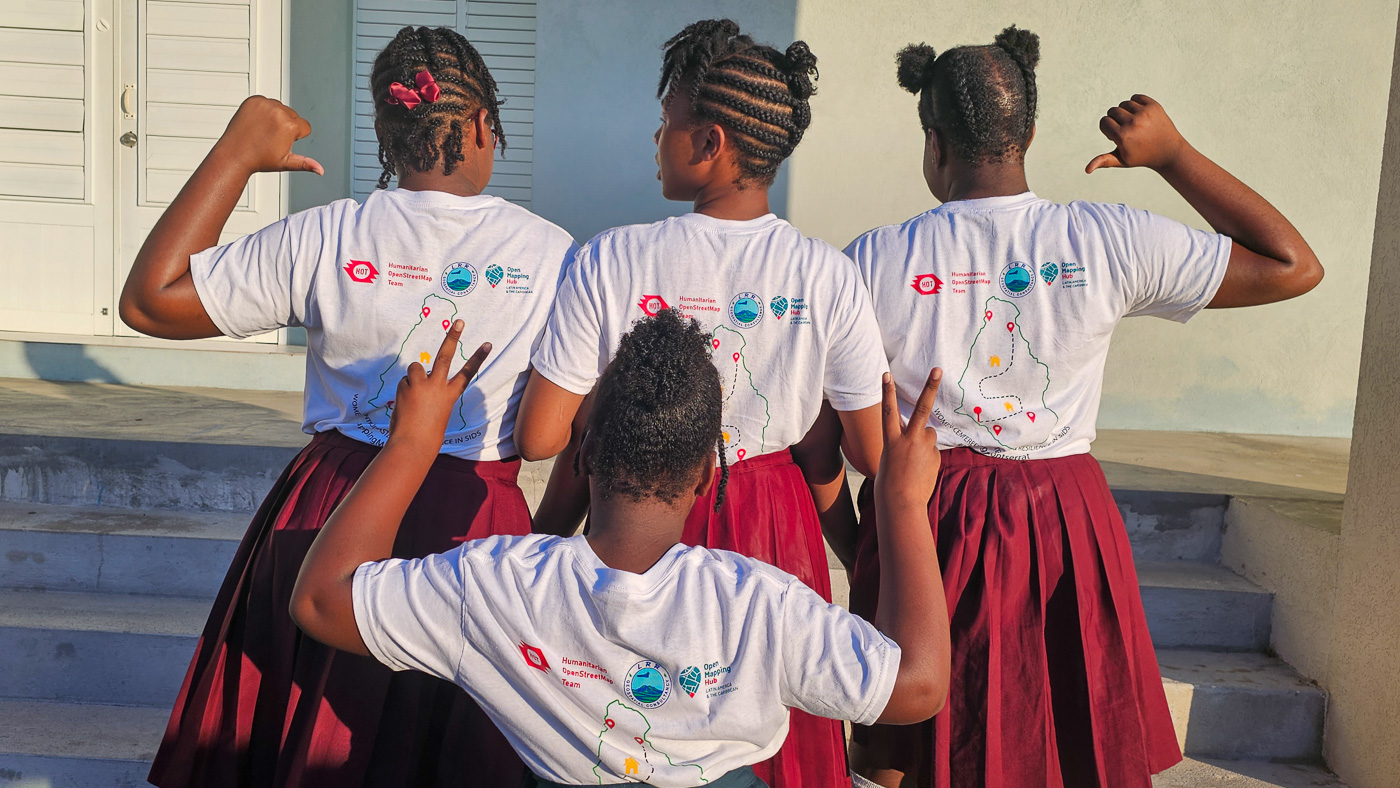244
Women trainedⓘ
9
Partnerships for resiliency ⓘ
15
Open mapping tools created ⓘ
8
Countries to be covered ⓘ
2024 - 2025 Cycle

According to the UN, most people displaced and who are vulnerable to displacement due to climate change are women in Small Island Developing States (SIDS). Their unequal decision-making power undermines emergency recovery efforts and development at every level, which adds to the hardships usually faced in those islands as a result of their shared similarities, including their isolation from the mainland, their reliance on industries like tourism, and their high vulnerability to natural disasters and climate change with inadequate infrastructures to protect their populations. Furthering these challenges is that there are not enough mapping specialists, OpenStreetMap communities are small or nonexistent, and few are women.
This program focuses on improving the well-being and increasing the agency and resilience of women and girls who live in SIDS by building their capacity to create, access, and use open map data.
Three islands were selected as pilot projects: Trinidad and Tobago, Timor Leste, and the Archipel of Saloum Islands in Senegal. Those places were selected mainly due to the availability of partners in the island. From February 2023, we were able to start developing partnership agreements with identified partners and define the scope of the work. Partners were asked to develop a proposal that would be validated by HOTOSM.

improving the well-being and increasing the agency and resilience of women and girls who live in SIDS by building their capacity to create, access, and use open map data
1.- Increase the presence of OpenStreetMap (OSM) and open-source communities in SIDS that are underrepresented and underserved in these fields.
2.- Women communities are trained in core map competencies e.g. project management, Geographic Information Systems mapping, mobile data collection, etc.
3.- Open mapping champions and influencers (groups and individuals) are identified and strengthened
1.- Build out women-centered projects in small island developing states that are faced with disasters.
2.- Women communities in SIDS have the knowledge, tools, funding, and geo-data to implement and advocate for socio-economic change.
3.-Women in underrepresented groups in SIDS are connected to tools and are motivated to create geographical data and solutions.
1.- Women in SIDS share knowledge and lessons learned from within and across different regions.
2.- A diverse makeup of women community champions and partners are increasingly networked to each other sharing learning and knowledge.
3.- Women communities in SIDS have an open dialogue and collaborate with local/global actors from all sectors.

For 13 years, HOT has worked in collaboration with local communities to put the places they live on the world map. Our global community of 600K+ volunteers map buildings, roads, and key infrastructure on OpenStreetMap (OSM), a free open source map of the world. Our four Regional Hubs work in 94 countries, connecting with local organizations, government agencies, international networks, and others to ground truth map data and get locally created maps into the hands of decision-makers. Community knowledge, needs, and solutions are at the center, with HOT facilitating the end-to-end process of identifying missing data, mapping, analyzing data, and using that data effectively.
HOT's work is global in scale and contributes to the achievement of the Sustainable Development Goals (SDGs). Our Monitoring and Evaluation framework is constantly evolving to ensure tangible and measurable impact. Check out our core impact areas and learn more about where we're making a difference.